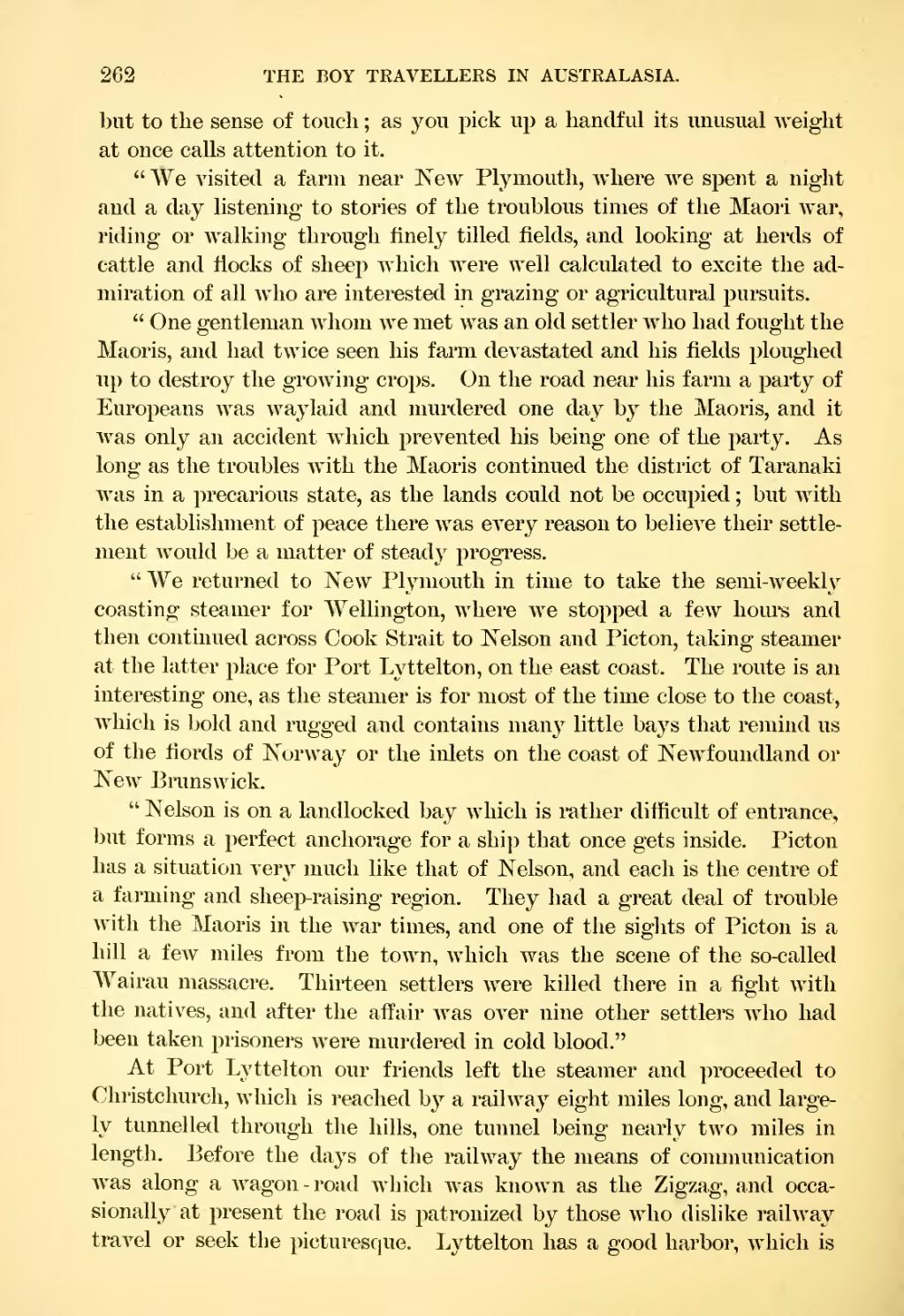but to the sense of touch; as you pick up a handful its unusual weight at once calls attention to it.
"We visited a farm near New Plymouth, where we spent a night and a day listening to stories of the troublous times of the Maori war, riding or walking through finely tilled fields, and looking at herds of cattle and flocks of sheep which were well calculated to excite the admiration of all who are interested in grazing or agricultural pursuits.
"One gentleman whom we met was an old settler who had fought the Maoris, and had twice seen his farm devastated and his fields ploughed up to destroy the growing crops. On the road near his farm a party of Europeans was waylaid and murdered one day by the Maoris, and it was only an accident which prevented his being one of the party. As long as the troubles with the Maoris continued the district of Taranaki was in a precarious state, as the lands could not be occupied; but with the establishment of peace there was every reason to believe their settlement would be a matter of steady progress.
"We returned to New Plymouth in time to take the semi-weekly coasting steamer for Wellington, where we stopped a few hours and then continued across Cook Strait to Nelson and Picton, taking steamer at the latter place for Port Lyttelton, on the east coast. The route is an interesting one, as the steamer is for most of the time close to the coast, which is bold and rugged and contains many little bays that remind us of the fiords of Norway or the inlets on the coast of Newfoundland or New Brunswick.
"Nelson is on a landlocked bay which is rather difficult of entrance, but forms a perfect anchorage for a ship that once gets inside. Picton has a situation very much like that of Nelson, and each is the centre of a farming and sheep-raising region. They had a great deal of trouble with the Maoris in the war times, and one of the sights of Picton is a hill a few miles from the town, which was the scene of the so-called Wairau massacre. Thirteen settlers were killed there in a fight with the natives, and after the affair was over nine other settlers who had been taken prisoners were murdered in cold blood."
At Port Lyttelton our friends left the steamer and proceeded to Christchurch, which is reached by a railway eight miles long, and largely tunnelled through the hills, one tunnel being nearly two miles in length. Before the days of the railway the means of communication was along a wagon-road which was known as the Zigzag, and occasionally at present the road is patronized by those who dislike railway travel or seek the picturesque. Lyttelton has a good harbor, which is
